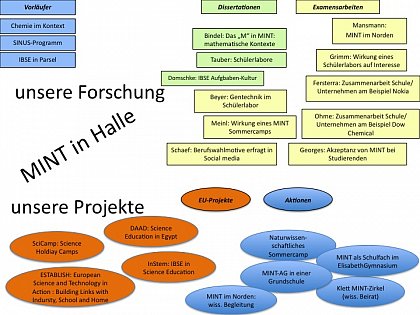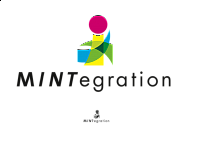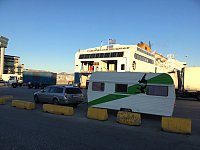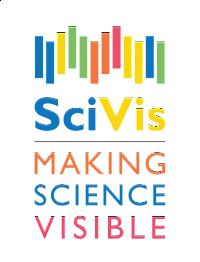STEM in Halle

Research collaboration projects
The importance of STEM-Education
STEM research at the department of Biology Education in Halle
MINT : The importance of science is immense
There is no doubt that science and technical progress characterise our society, and that this area is of prominent relevance to the economy as well. No part of our lives could be thought without it, whether it be food production, healthcare, transportation and mobility, or communication and our information society. This is why efforts under the title of MINT (Mathematics, computer science (Informatik), natural sciences (Naturwissenschaften), technics) have three main goals:
Improving what has been described as “scientific literacy”, the basic scientific and technic understanding of every pupil
Enabling participation in our society’s scientific and technic based decision making processes
Recruiting young talent for technical/scientific professions
Ultimately, the idea is to give those without a connection to technical issues a certain basic knowledge, to enable them to understand and solve questions in order to participate in our modern technical and scientific world.
We can only achieve these goals if we work together with many parties. The following are important actors in this network:
- Pupils
- Teachers
- Heads of departments and of the didactics of the respective departments at universities and teacher training colleges
- Companies with a technic and scientific orientation
- Scientific and technic research institutions
- Federations and professional associations
We know from various projects that long-term cooperation is crucial to create effective structures for every party. Educational institutions and didactic researchers can function as catalysts and instructors who develop model projects. These projects can then be further developed by other project partners or externally funded by third-party funds.
Initiatives for MINT
Because the ideas mentioned above are widely accepted, especially among politicians and companies, there are already quite a few initiatives in support of MINT-ideas. To be mentioned are the MINT-schools funded by the foundation Deutsche Wirtschaft, summer camps or pupil labs in different companies and research institutes. The existing and long-cherished cooperation between schools and corporations has been improved and enhanced by explicitly scientific/technic offers.
There have also been initiatives from the federal Ministry of Education, for example mentoring-programs especially for female pupils.
All these initiatives are important in a distinct international context, because a shortage of skilled workers in MINT-areas is in sight. Many nations, including the USA and the EU, are striving to recruit qualified employees even from students and pupils.
Research on MINT
So far, research has concentrated on these three questions:
- Which factors help young people to choose a professional career in the MINT-area?
- What is the impact of pupil laboratories on pupil’s interest in MINT-subjects?
- What kind of education influences the development of scientific literacy?
What has been found out is that the loss of interest in scientific subjects is internationally equally characteristic, with the exception of Asian students. Two factors are critical here: the image of scientific professions and pupil’s experience that scientific subjects are “hard” subjects. The image of scientific professions is partly coined by mass media. In movies and comics, researchers are lonely figures behind test tubes who torture animals and create genetically modified monsters or weapons of mass destruction. No wonder these role models are not exactly attractive to young boys and especially girls. They would rather do “something with other people”.
Pupil laboratories, which have been widely established over the last 20 years, have proven to raise interest in scientific subjects, but only for a short period of time. An influence on the career decision has not yet been proven, partly because pupil laboratories often only run brief.
Research on education yielded three main factors of influence: how convincing the teacher acts, school grades, and the kind of lesson received. More open forms of lessons, which encourage pupils to interact with the subject, are more effective and longer lasting than the classic frontal instruction based lessons, which only employed cookbook-like instructions when it came to experiments.
MINT in didactics of biology in Halle
The head of the didactics department, Martin Lindner, has a record of 10 years of MINT-initiatives. He initiated and supported numerous projects in Schleswig-Holstein as coordinator of the SINUS-Program, for example the project “MINT im Norden” or the “Year of the sciences”. This project featured one-week summer meetings for teachers and pupils. On international level, he worked on the PARSEL and CROSSNET projects and is currently involved with the ESTABLISH project.
Latest research approaches
MINT-Networks
Our research approaches are working with methods of sociological gathering and analysis of data, especially network analysis. In two federal countries, Sachsen-Anhalt and Schleswig-Holstein, MINT participants are registered and their interactions analysed. Questions include:
- What are the differences between the networks in the federal countries?
- Do these differences influence the networks functionality?
Career Decisions
One study interviews graduates from school in social networks. What kinds of project teams or experiences with pupil laboratories influenced them in their career decision?
Influence of student laboratories
Former, recent and future visitors to pupil laboratories are questioned about their expectations and experiences with pupil laboratories. We are especially interested in their influence on career decisions. Link to master thesis
Cooperation between corporations and schools
We are investigating the development of cooperation between schools and corporations with the help of three exemplary situations. One of the projects has just started, another one has been running for a few years and the last one features a long-running cooperation with a major international corporation. Link to master thesis
Cooperation in teacher teams
As proven in many studies, cooperation in teacher teams is crucial for changing tuition. We are studying an example of a MINT project initiated by the local school administration to see what factors affect team formation and how development and cooperation work out.
Effect of summer camps on participants
We scientifically evaluate the second run of a summer camp. We are primarily interested in a possible change of the participants’ attitude toward science and technics, and also changes of their expectations of jobs in this sector. Link to master thesis
International cooperation
In connection to our participation in the ESTABLISH project (European Science And Technology in Action Building Links between Industry, School and Home), we study the creation of teaching units, their use in professional development of teachers, and furthermore the differences between school lessons and business and science reality.











